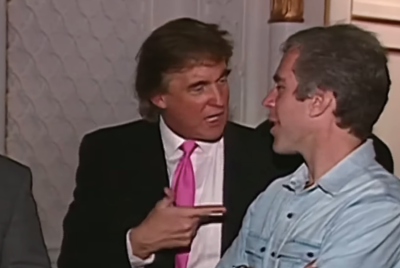Did Trump's Pardon Serve the Public — or His Own Crypto Empire? Experts Warn of 'Unprecedented' Corruption
Lawmakers warn the pardon blurs the line between power and profit

President Trump's decision to grant a quiet, unannounced pardon to crypto billionaire Changpeng Zhao is prompting intense scrutiny from legal experts, ethics scholars and former officials, who warn the move may represent one of the most serious examples of self-dealing in modern presidential history.
According to a detailed investigation by CBS' 60 Minutes, the pardon came after Zhao's company, Binance, provided critical support to Trump's fledgling crypto venture, World Liberty Financial, at a moment when it was struggling to get off the ground.
The revelation has raised a central question: Was the pardon an act of justice, or a decision that directly benefited the president's family business?
A Pardon With High Financial Stakes
Zhao, the founder of Binance, pleaded guilty in 2023 to failing to prevent money laundering on his exchange. Binance paid a fine of more than £3.1 billion ($4 billion), and Zhao served a four-month federal sentence. Prosecutors said his actions caused, quote, '...significant harm to U.S. national security...'
'He's one of the richest men in the world,' former Justice Department pardon official Elizabeth Oyer told 60 Minutes. 'And he was essentially allowing his company to be used as a platform to finance criminal activity, to send money to terrorist organizations, Al-Qaeda, Hamas, ISIS and he was prosecuted criminally for that.'
Oyer, who once oversaw pardon vetting at the Justice Department, said Zhao 'wasn't close to meeting Justice Department guidelines for a pardon', calling the decision 'unprecedented'.
'The influence that money played in securing this pardon is unprecedented,' she said. 'The self-dealing aspect of the pardon in terms of the benefit that it conferred on President Trump, and his family, and people in his inner circle is also unprecedented.'
Asked whether the decision amounted to justice, she replied: 'This is absolutely not justice. This is corruption.'
Zhao's Role in Boosting Trump's Crypto Venture
World Liberty Financial, launched by the Trump family ahead of the 2024 election, was marketed as a groundbreaking digital-finance company. But according to 60 Minutes, it was far from ready. The startup had only a handful of engineers, a partially filled fundraising round and little operational infrastructure.
That changed when Zhao emerged from prison.
Sources told CBS that Binance donated software to World Liberty, enabling the Trump venture to launch its cryptocurrency. A source familiar with the project said that without Zhao's support, 'the technology doesn't exist'.
Within weeks, a United Arab Emirates fund invested £1.52 billion ($2 billion) in Binance — and executed the entire transaction using World Liberty's cryptocurrency. The influx transformed the obscure token into what analysts described as one of the world's largest stablecoins almost overnight.
'It vaulted them from small time to the big leagues,' said New York University crypto expert Austin Campbell.
The £1.52 billion ($2 billion) deposit remains parked at World Liberty, a sum that could generate as much as £61 million ($80 million) a year in interest for the Trump family and their partners. One source told 60 Minutes that Zhao 'now controls whether [World Liberty] dies or lives. He has a sword over their head.'
Ethics Experts Warn of a Compromised Presidency
Harvard law professor Lawrence Lessig argued the pardon raises profound national security and governance risks.
''Compromised' is exactly the description,' he told 60 Minutes, warning that the intertwining of foreign money, presidential business interests and executive power threatens public trust. 'Any ordinary American would understand why that's a corrupting relationship.'
Michael Gerhardt, a constitutional scholar who has advised both political parties, shared similar concerns.
'All those things benefit Trump and Trump family. They do not benefit the people of the United States so that makes it a classic example of a conflict of interest the Constitution is designed to prevent.'
A President Under Growing Scrutiny
Trump has insisted he does not know Zhao, telling reporters: 'I don't know him. I don't believe I've ever met him.' The White House maintains that 'neither the president nor his family has engaged in conflicts of interest.'
But for Oyer, the implications remain grave.
'This president appears to be selling off pieces of our democracy,' she said.
As Congress and watchdog groups examine the financial trail connecting Zhao, Binance and World Liberty Financial, the question remains: Did the presidential pardon serve the nation — or the president's bottom line?
© Copyright IBTimes 2025. All rights reserved.





















